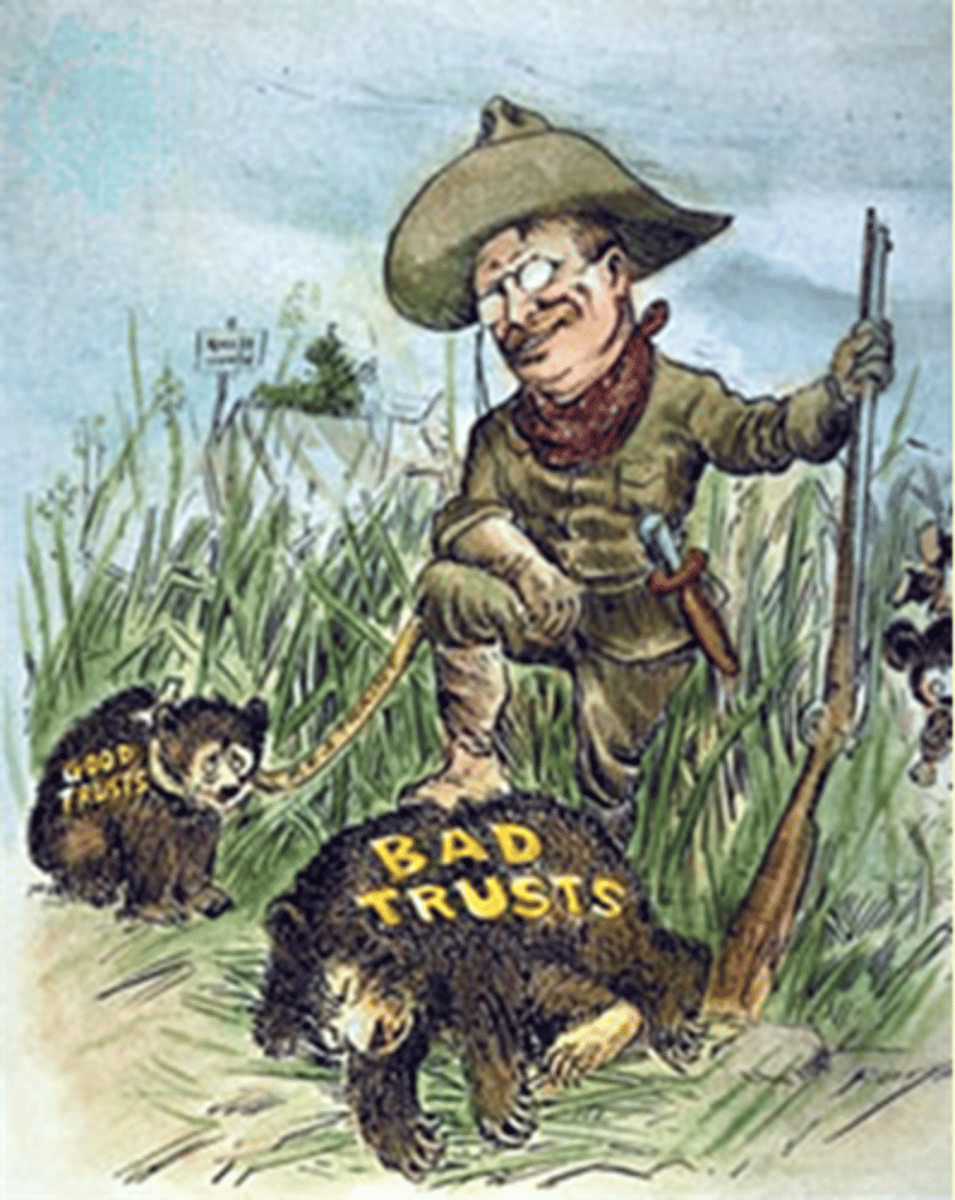American Pageant Chapter 28
1/35
There's no tags or description
Looks like no tags are added yet.
Name | Mastery | Learn | Test | Matching | Spaced |
|---|
No study sessions yet.
36 Terms
Jacob Riis
A Danish immigrant, he became a reporter who pointed out the terrible conditions of the tenement houses of the big cities where immigrants lived during the late 1800s. He wrote "How The Other Half Lives" in 1890.
Lincoln Steffens
United States journalist who exposes in 1906 started an era of muckraking journalism (1866-1936), Writing for McClure's Magazine, he criticized the trend of urbanization with a series of articles under the title "Shame of the Cities"
Jane Addams
1860-1935. Founder of Settlement House Movement. First American Woman to earn Nobel Peace Prize in 1931 as president of Women's Intenational League for Peace and Freedom.
Ida Tarbell
A leading muckraker and magazine editor, she exposed the corruption of the oil industry with her 1904 work "A History of Standard Oil"
Robert M. La Follette
A proponent of Progressivism and a vocal opponent of railroad trusts, bossism, WWI, and the League of Nations. He ran for President as the nominee of his own Progressive Party in 1924.
Upton Sinclair
muckraker who shocked the nation when he published "The Jungle", a novel that revealed gruesome details about the meat packing industry in Chicago. The book was fiction but based on the things Sinclair had seen.
Gifford Pinchot
head of the U.S. Forest Service under Roosevelt, who believed that it was possible to make use of natural resources while conserving them
Eugene V. Debs
one of the founding members of the Industrial Workers of the World and five times the candidate of the Socialist Party of America for President of the United States
William Howard Taft
27th president of the U.S.; he angered progressives by moving cautiously toward reforms and by supporting the Payne-Aldrich Tariff; he lost Roosevelt's support and was defeated for a second term.
initiative
A procedure by which voters can propose a law or a constitutional amendment.
referendum
A state-level method of direct legislation that gives voters a chance to approve or disapprove proposed legislation or a proposed constitutional amendment.
recall
A procedure for submitting to popular vote the removal of officials from office before the end of their term.
dry state
a state in the United States in which the manufacture, distribution, importation, and sale of alcoholic beverages are prohibited or tightly restricted.
wet state
a state in the United States in which the manufacture, distribution, importation, and sale of alcoholic beverages is allowed
trustbusting
Government activities seeking to dissolve corporate trusts and monopolies
conservation
Protecting and preserving natural resources and the environment
preservationism
a holistic view of nature that assumes that an intact ecosystem is greater than the sum of its parts, with an emphasis on preserving natures because of this extra value above and beyond the value of the individual parts
dollar diplomacy
Foreign policy created under President Taft that had the U.S. exchanging financial support ($) for the right to "help" countries make decisions about trade and other commercial ventures. Basically it was exchanging money for political influence in Latin America and the Caribbean.
muckrakers
1906 - Journalists who searched for corruption in politics and big business
Seventeenth Amendment
1913 constitutional amendment allowing American voters to directly elect US senators
Eighteenth Amendment
prohibited the manufacture, sale, and distribution of alcoholic beverages
Elkins Act
(1903) gave the Interstate Commerce Commission more power to control railroads from giving preferences to certain customers
Hepburn Act
This 1906 law used the Interstate Commerce Commission to regulate the maximum charge that railroads to place on shipping goods.
Muller v. Oregon
1908 - Supreme Court upheld Oregon state restrictions on the working hours of women as justified by the special state interest in protecting women's health
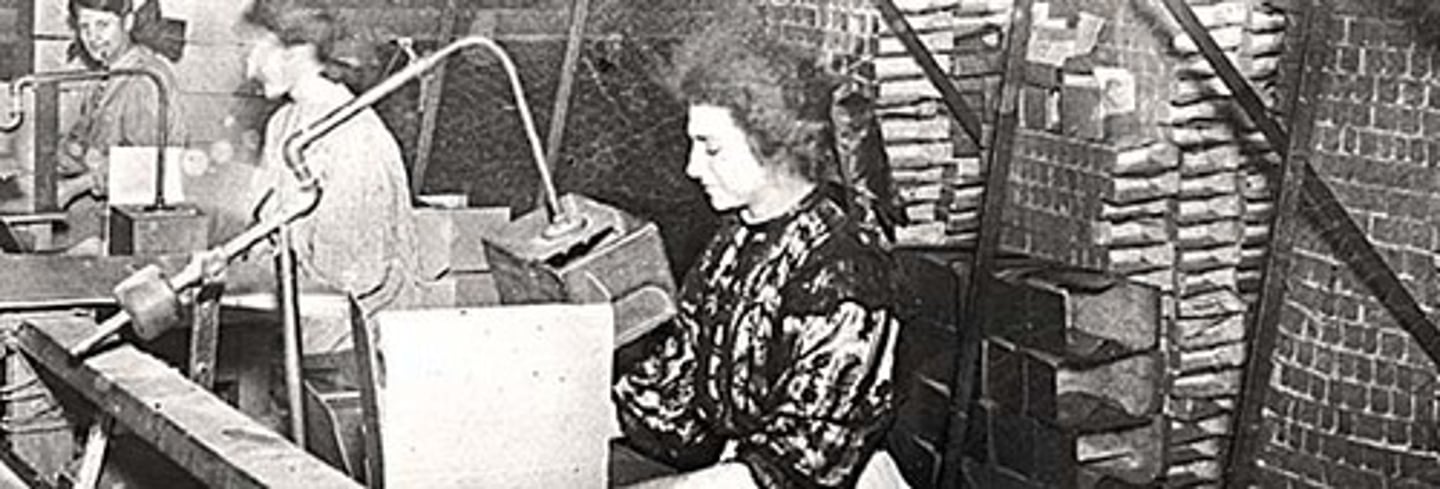
Triangle Shirtwaist fire
March 1911 fire in New York factory that trapped young women workers inside locked exit doors; nearly 50 ended up jumping to their death; while 100 died inside the factory; led to the establishment of many factory reforms, including increasing safety precautions for workers
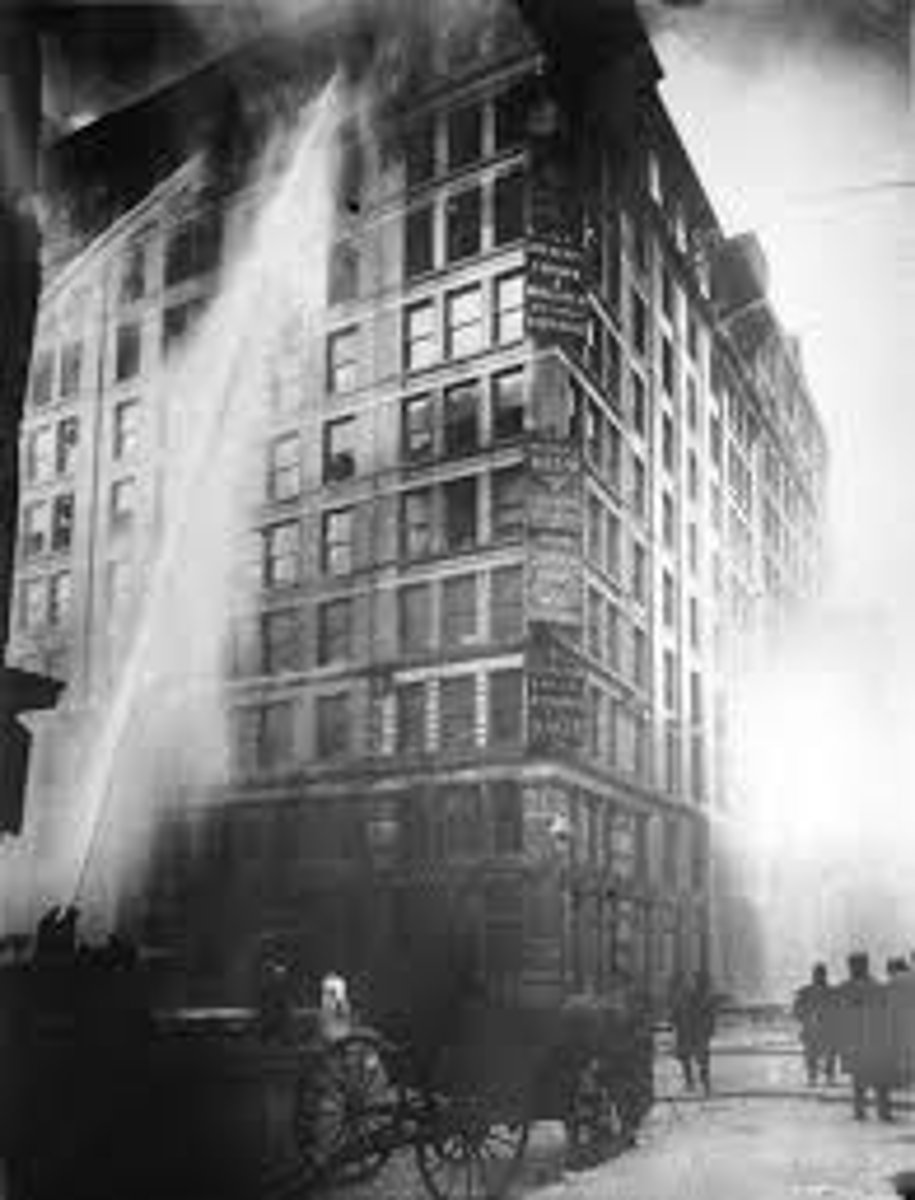
Women's Christian Temperance Union
This organization was dedicated to the idea of the 18th Amendment - the Amendment that banned the manufacture, sale, or transportation of alcohol. The pres of the company was Frances Willard.
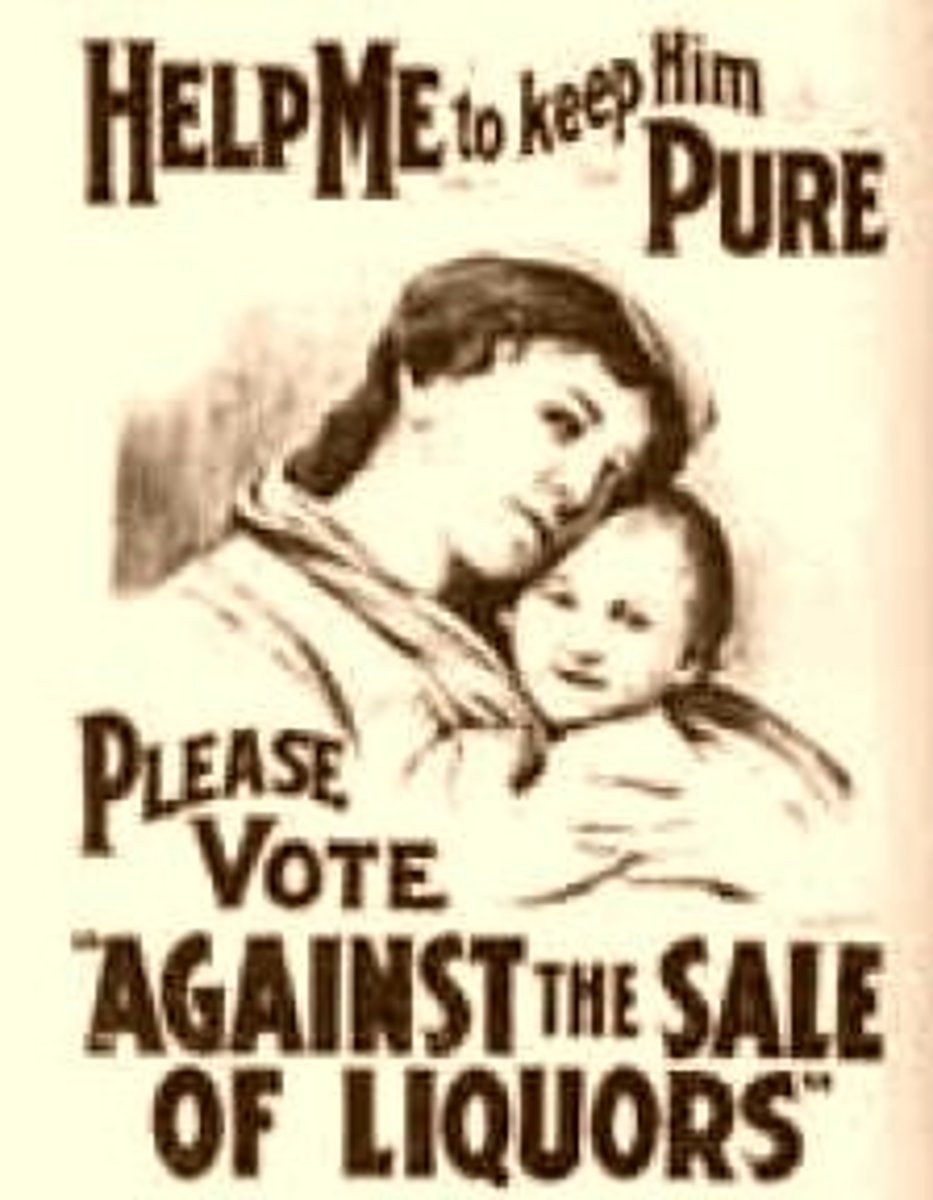
the Square Deal
Teddy Roosevelt's campaign slogan in the election of 1904. It was meant that all Americans should have an equal opportunity to succeed.
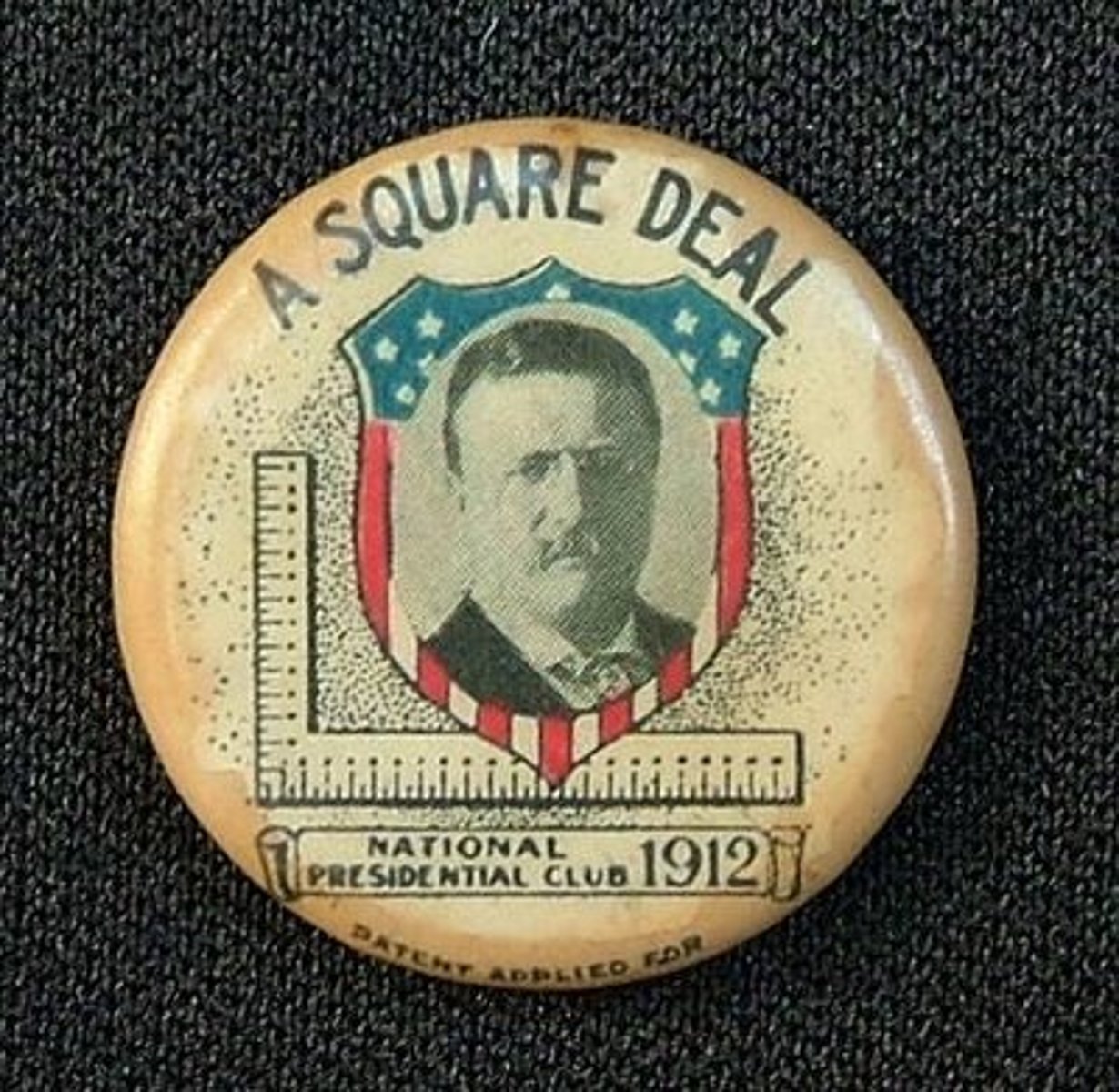
The Jungle
This 1906 work by Upton Sinclair pointed out the abuses of the meat packing industry. The book led to the passage of the 1906 Meat Inspection Act.
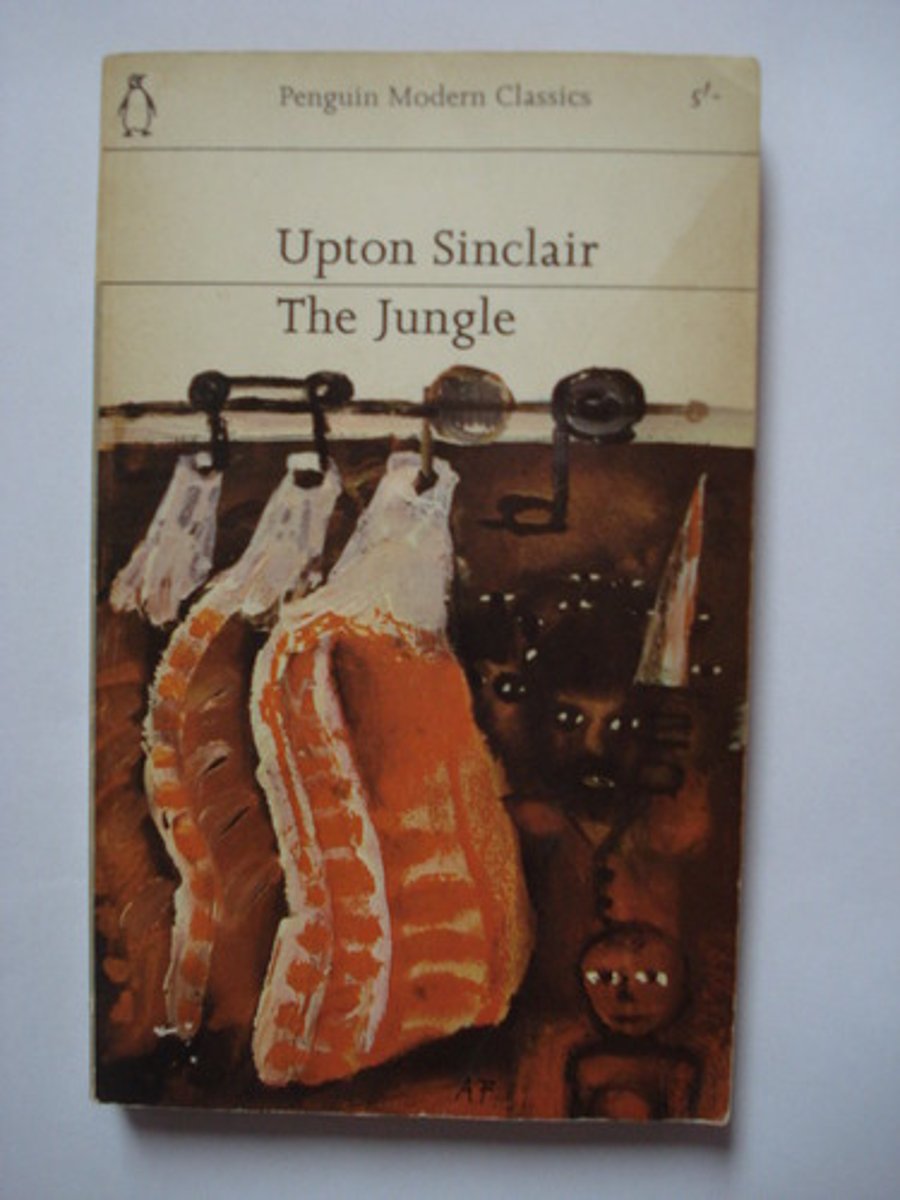
Meat Inspection Act
1906 - Laid down binding rules for sanitary meat packing and government inspection of meat products crossing state lines.
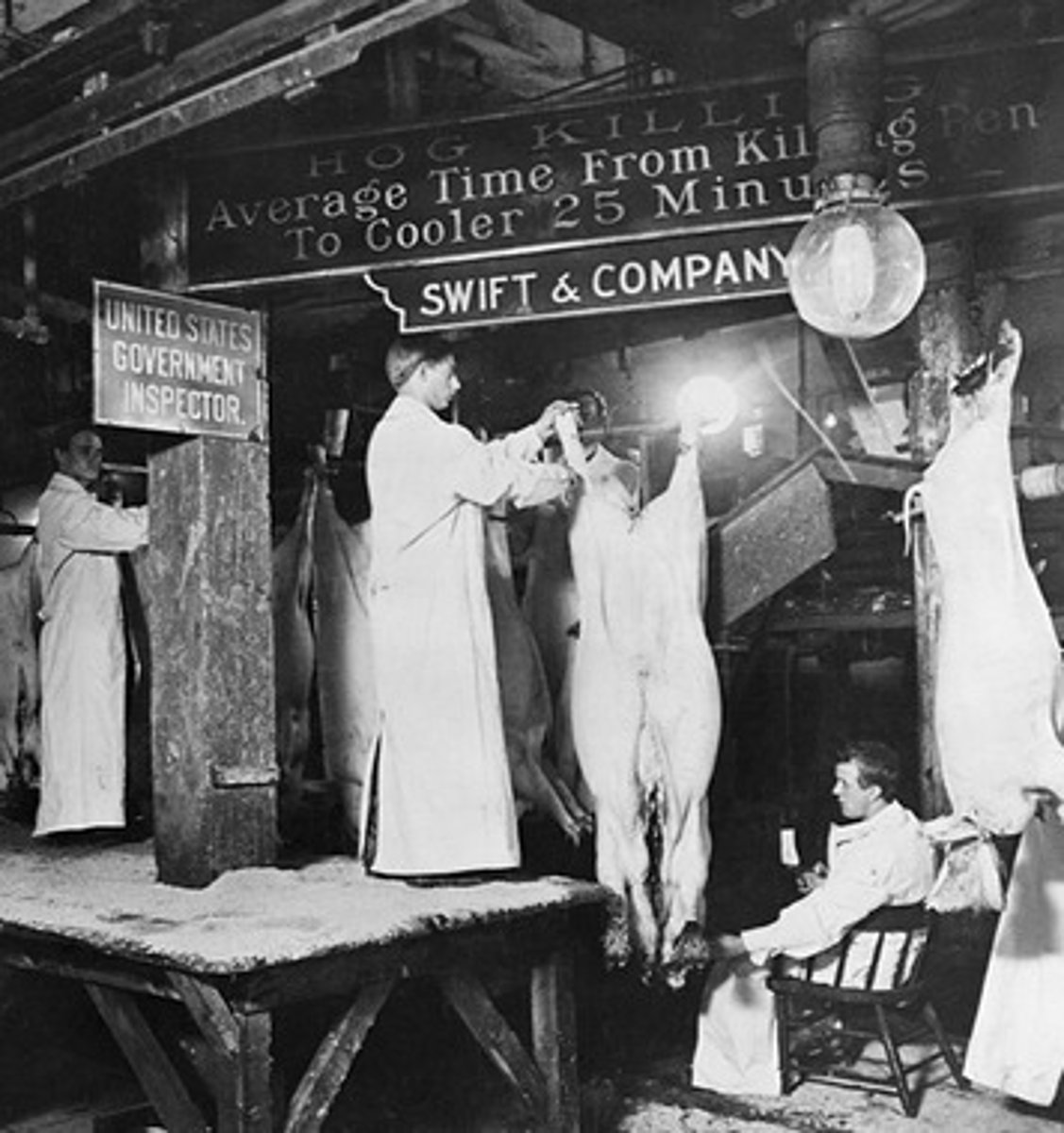
Pure Food and Drug Act
1906 - Forbade the manufacture or sale of mislabeled or adulterated food or drugs, it gave the government broad powers to ensure the safety and efficacy of drugs in order to abolish the "patent" drug trade. Still in existence as the FDA.
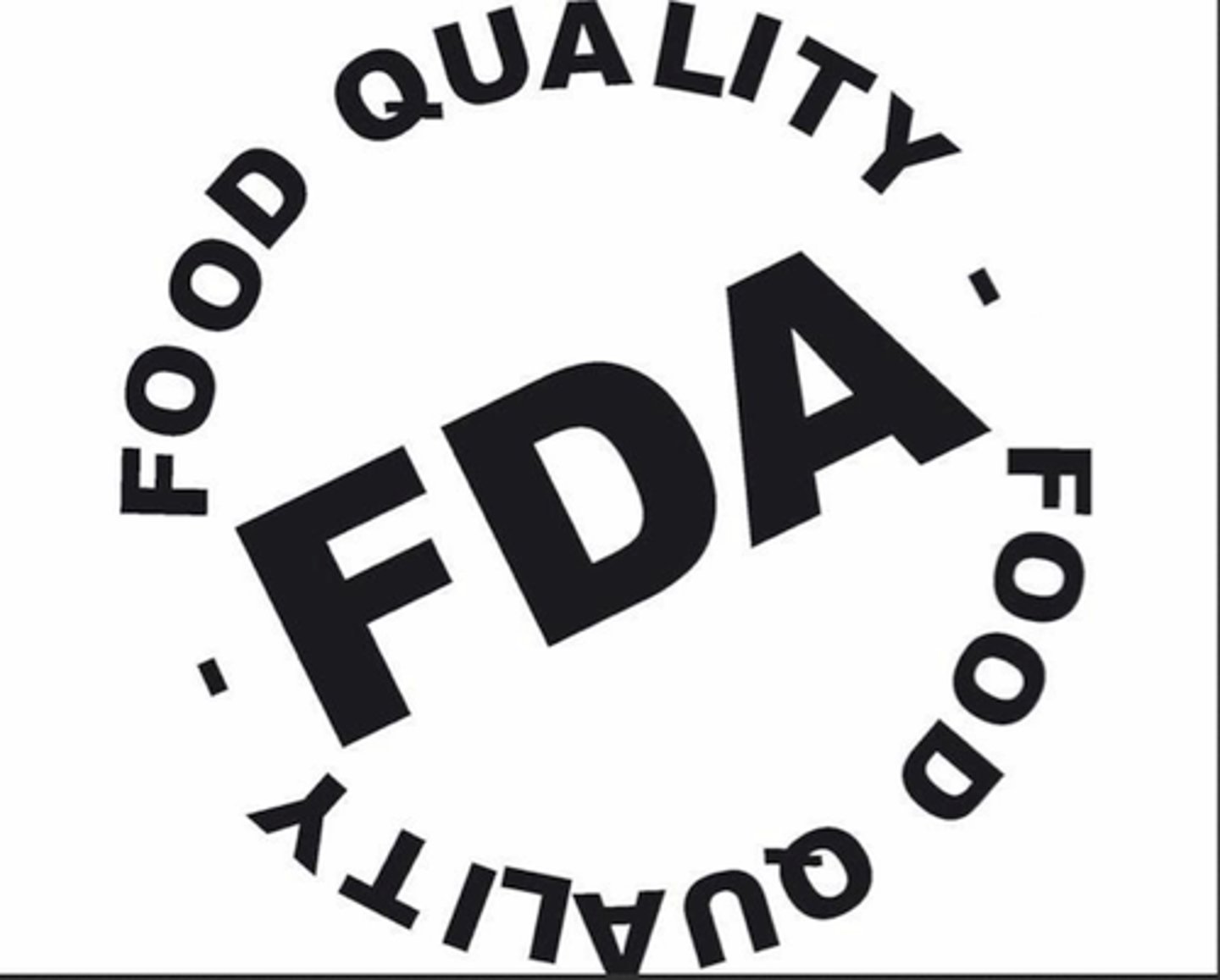
New Nationalism
Teddy Roosevelt's progressive political policy that favored heavy government intervention in order to assure social justice
U.S. Forest Service
this organization created by Teddy Roosevelt in 1905 brought the federal government to regulate the natural environment
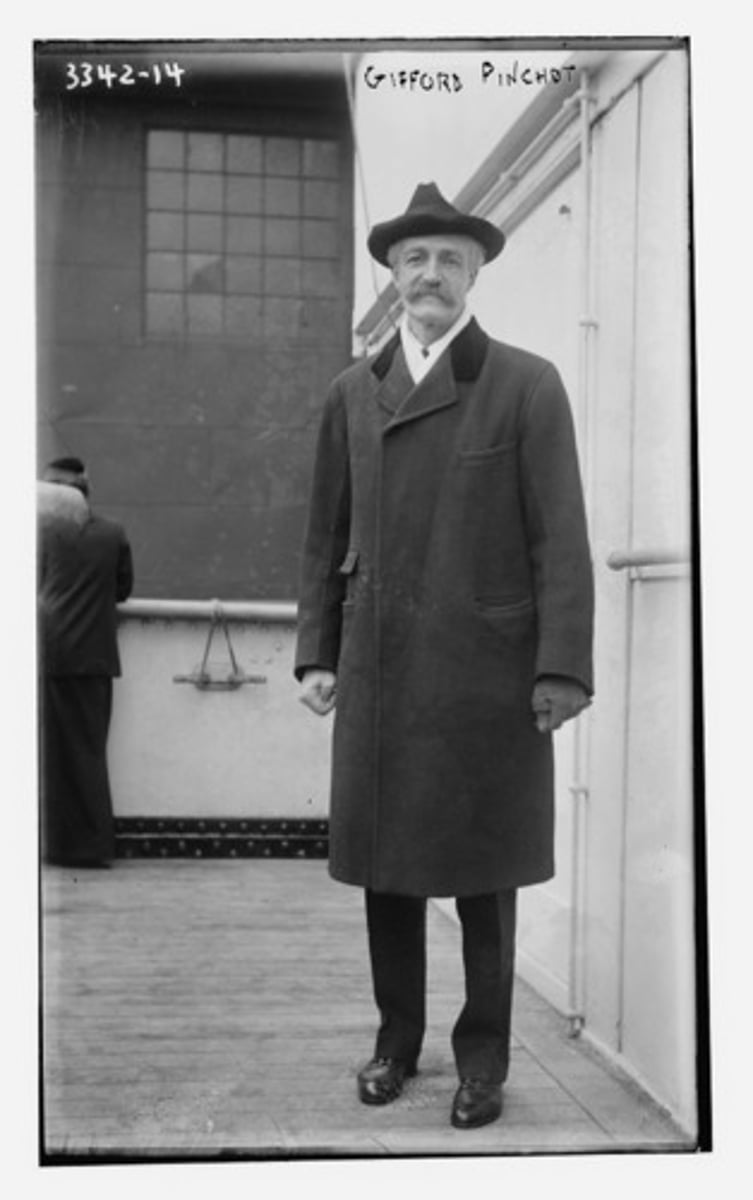
Secret (Australian) Ballot
A ballot printed by a state that allows voters to pick and choose among different candidates and party preferences in private
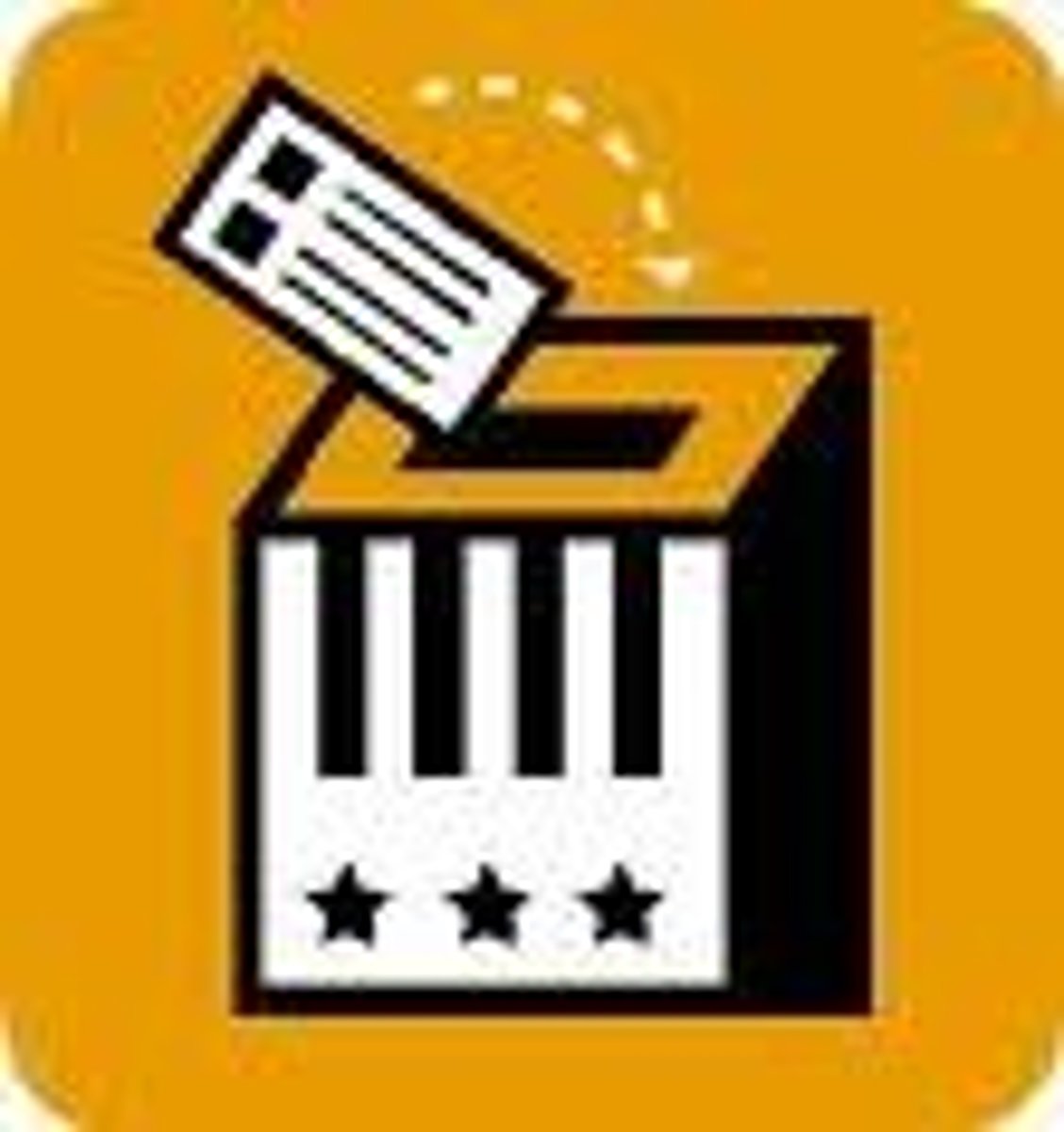
Direct election
election of an official directly by the people rather than by an intermediary group such as the Electoral College
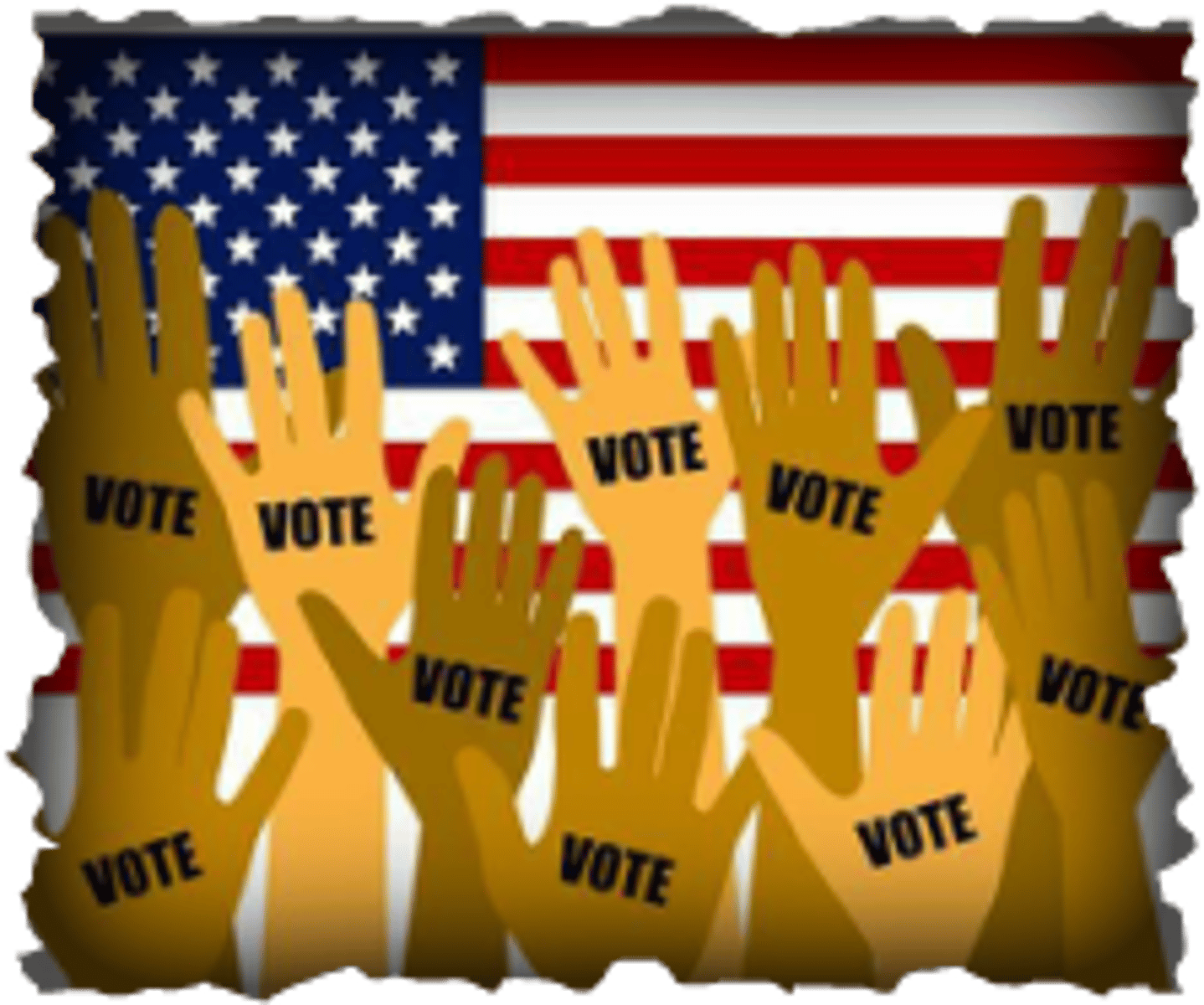
Woman Suffrage Movement
*Organized in mid 19th century to gain right to vote for women
*First success: Wyoming Territory grants right to vote to women
*Final success: Nineteenth Amendment in 1920 which granted woman suffrage throughout the U.S.
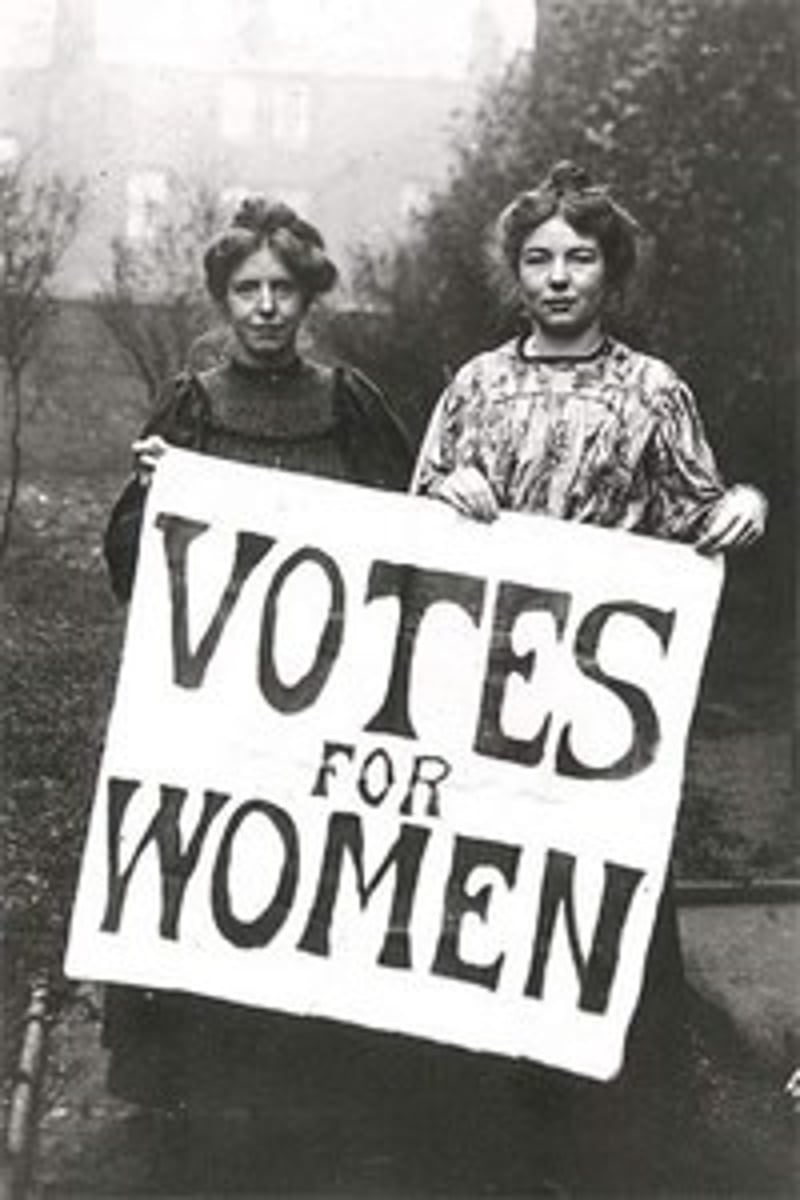
Trustbuster
a person working to destroy monopolies and trusts
